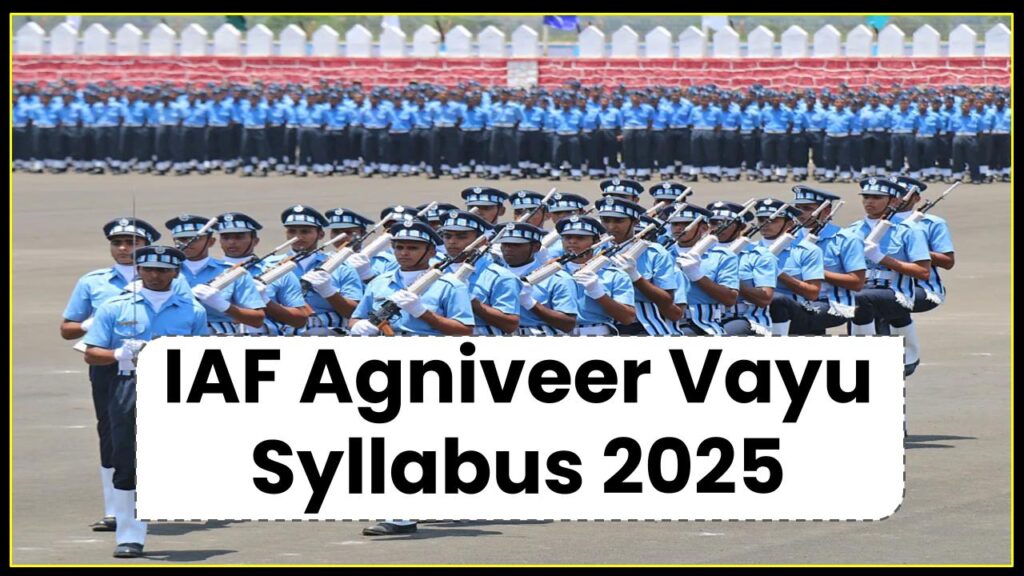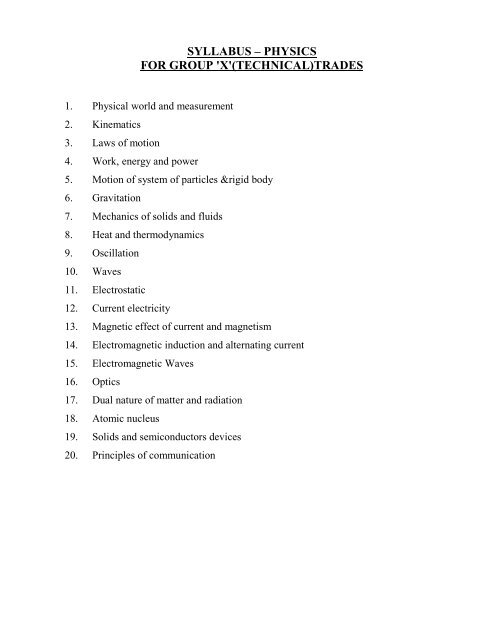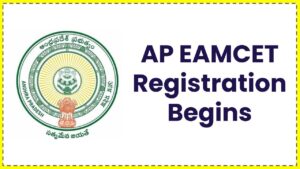The IAF Agniveer Vayu 2025 exam is an exciting and competitive opportunity for those looking to serve in the Indian Air Force under the Agnipath Scheme. This scheme offers young individuals a chance to serve the nation for a period of four years, making it a life-changing career path for many. But before you start picturing yourself in uniform, it’s important to get familiar with the exam syllabus, structure, and all the little details that will help you score high and secure your spot.

In this guide, we’ll break down the IAF Agniveer Vayu 2025 syllabus in easy-to-understand terms, so you can start your preparation on the right foot. Whether you’re a high school graduate looking to join the Air Force or someone with a deep interest in aviation, this article will provide you with all the necessary details to ensure you’re prepared for exam day. We’ll go over exam patterns, subjects, and some useful tips to ace your preparation.
Table of Contents
IAF Agniveer Vayu Syllabus 2025
| Key Detail | Information |
|---|---|
| Exam Type | Computer-based test (CBT) |
| Group X (Science) | English, Physics, Mathematics |
| Group Y (Non-science) | English, Reasoning, General Awareness |
| Duration | 45 to 85 minutes depending on group |
| Negative Marking | Yes, 0.25 for each wrong answer |
| Marking Scheme | +1 for each correct answer |
| Total Marks | 50 – 100 (depending on group) |
| Eligibility | Minimum 17 to 23 years age |
The IAF Agniveer Vayu 2025 exam is a great opportunity for young, aspiring individuals to serve in one of the most prestigious forces in the world. By understanding the exam pattern, focusing on core subjects like English, Physics, and Reasoning, and following a structured preparation plan, you’ll be well on your way to acing the exam. Remember, consistency is key, and with a little hard work and dedication, you’ll be ready to take flight into an exciting career with the Indian Air Force.
Exam Pattern Overview
The IAF Agniveer Vayu exam is divided into different sections based on the group you are applying for – Group X (Science) or Group Y (Non-science). Let’s break down how each group works and what you’ll be tested on.
Group X: Science (For Candidates with a Science Background)
This is for those who have completed their 12th grade with Physics, Mathematics, and English as core subjects.
- Subjects: English, Physics, Mathematics
- Questions: 70
- Total Marks: 70
- Duration: 60 minutes
- Marking Scheme: +1 for each correct answer, -0.25 for wrong answers.
If you are a science student, this will feel like a mix of your regular high school exams, but with a focus on aviation and technical skills. The questions will test your grasp on basic concepts of physics and math, as well as your command over the English language.

Group Y: Non-Science (For Candidates without a Science Background)
This is for those who did not pursue a science stream after 10th grade. In this case, the subjects will be:
- Subjects: English, Reasoning & General Awareness (RAGA)
- Questions: 50
- Total Marks: 50
- Duration: 45 minutes
- Marking Scheme: +1 for each correct answer, -0.25 for wrong answers.
Here, you’ll be tested on general knowledge, logical reasoning, and English language skills. This is a more conceptual exam compared to Group X, but it’s still competitive.
Combined Group X and Y (If You Are Applying for Both)
If you are eligible and applying for both Group X and Y, the test will cover a broad range of subjects, combining Science and Non-science.
- Subjects: English, Physics, Mathematics, Reasoning & General Awareness
- Questions: 100
- Total Marks: 100
- Duration: 85 minutes
- Marking Scheme: +1 for each correct answer, -0.25 for wrong answers.
Detailed Subject-wise Breakdown
English
Whether you’re in Group X or Y, English plays a significant role. Here’s what you need to focus on:
- Grammar: Tenses, Subject-Verb Agreement, Articles, Prepositions, Conjunctions
- Vocabulary: Synonyms, Antonyms, Idioms & Phrases
- Reading Comprehension: Practice understanding the text and answering related questions.
- Error Detection: Spotting grammatical errors in sentences and fixing them.
Physics (For Group X candidates)
For those in Group X, Physics is a core subject and will account for a significant portion of your preparation. The topics covered include:
- Mechanics: Laws of motion, Work, Energy & Power
- Electrostatics and Magnetism: Current Electricity, Magnetic Effects of Current
- Optics: Reflection, Refraction, and Wave Optics
- Thermodynamics: Heat, Temperature, Laws of Thermodynamics
Mathematics (For Group X candidates)
This is another core subject for Group X students. Your focus should be on:
- Algebra: Equations, Progressions, Complex Numbers
- Trigonometry: Angles, Ratios, Identities, Heights & Distances
- Coordinate Geometry: Lines, Circles, Parabolas
- Calculus: Differentiation, Integration
Reasoning & General Awareness (RAGA)
For Group Y candidates, Reasoning and General Awareness are the primary sections. Here’s what you need to focus on:
- Reasoning: Logical Puzzles, Direction Sense, Blood Relations, Coding-Decoding, Number Series
- General Awareness: Current affairs, National and International events, Sports, Economy, Science and Technology, Indian Polity
Preparation Strategy: A Step-by-Step Guide
1. Understand the Syllabus and Exam Pattern
Before you dive into books, make sure you thoroughly understand the exam structure. Know what’s expected in each subject and which areas are your strengths and weaknesses.
2. Create a Study Plan
Time management is crucial. Create a detailed study schedule that includes time for each subject. Don’t forget to allocate time for practice papers and mock tests.
3. Practice Previous Year Papers
Start solving past question papers to understand the exam format and identify the areas that need more attention. This will also help you develop time management skills, which are essential during the exam.
4. Focus on Core Topics
For Physics and Mathematics, focus on understanding the core concepts. These are subjects where understanding the theory is essential for solving numerical problems.
5. Stay Updated on General Awareness
For the General Awareness section, follow news, sports, and important events both nationally and internationally. You can read newspapers like The Hindu or Times of India for the most relevant updates.
6. Regular Mock Tests
Taking mock tests will help you assess your progress and improve your test-taking speed. They also give you a real-time feel of the exam environment, helping to reduce exam anxiety.
7. Stay Healthy
Don’t forget to take care of your physical and mental health. Proper diet, exercise, and sleep are essential for peak performance.
ISRO Recruitment 2025: 320 Exciting Job Openings at Indian Space Research Organisation
Maharashtra State Power Generation Company Apprentice Recruitment 2025
FAQs
Q1: What is the eligibility criteria for the IAF Agniveer Vayu exam?
To be eligible, candidates must be between 17 to 23 years old as of the year of the examination. You must have completed 12th grade (with science subjects for Group X) or 10+2 (with any stream for Group Y).
Q2: How many sections are there in the exam?
The exam is divided into three sections: Group X (Science), Group Y (Non-Science), and Combined Group X & Y. The sections test English, General Awareness, Physics, Mathematics, and Reasoning.
Q3: What is the marking scheme for the IAF Agniveer exam?
Each correct answer earns +1 mark, and each incorrect answer results in a -0.25 penalty. There’s no penalty for unattempted questions.
Q4: Where can I find the official syllabus?
The official syllabus can be found on the Indian Air Force’s official Agniveer website.
















